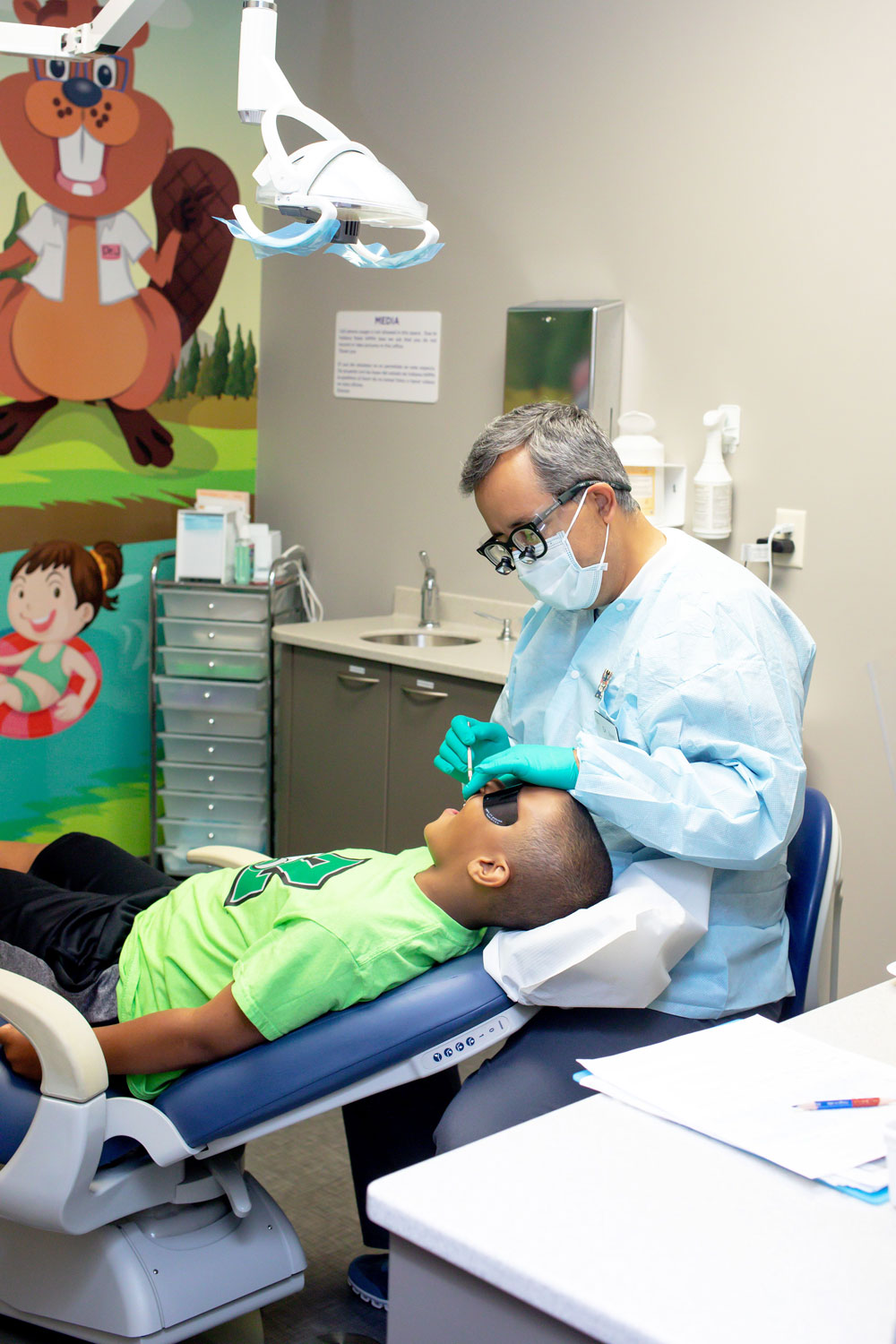Experienced Kids Dentist for Gentle and Effective Dental Care
Experienced Kids Dentist for Gentle and Effective Dental Care
Blog Article
Pediatric Dental Emergencies: What Moms And Dads Required to Know for Quick and Effective Treatment
In the realm of pediatric health care, oral emergency situations can develop all of a sudden, leaving parents unclear of exactly how to manage the scenario properly. Recognizing the indications, kinds of injuries, and prompt actions to take can make a significant distinction in the result for a kid's oral wellness. With a fast and proper reaction, parents can mitigate potential lasting repercussions and guarantee their kid obtains the required care without delay. By being prepared and informed, moms and dads can play a critical function in securing their youngster's oral well-being.
Indications of Pediatric Dental Emergencies
When evaluating pediatric oral emergencies, it is important for moms and dads to be attentive for details signs showing possible significant issues. One of the key indications of an oral emergency in kids is relentless tooth discomfort that is not reduced by non-prescription pain medications. This could suggest a hidden infection or damage that requires immediate attention from a dental expert. Swelling in the periodontals, face, or jaw location is an additional warning that must not be ignored, as it could be an indication of an abscess or other significant oral problem.

Usual Kinds Of Dental Injuries
Common types of oral injuries in children commonly arise from crashes or sports-related activities that can result in numerous types of injury to the mouth and teeth. One common oral injury is a fractured tooth, which can range from a small chip to an extra serious break including the inner layers of the tooth. One more regular injury is a knocked-out tooth, where prompt action is crucial to raise the opportunities of saving the tooth. Children might additionally experience dental injuries like tooth invasion, where the tooth is pressed into the jawbone, or avulsion, which is the total displacement of a tooth from its socket. Additionally, oral injuries can consist of luxation, where the tooth is dislodged but not completely knocked senseless, or soft tissue injuries to the periodontals, lips, or tongue. It is essential for parents to be familiar with these usual kinds of oral injuries to provide punctual and suitable treatment in instance of emergency situations.
Immediate Emergency Treatment Steps
Upon coming across a pediatric dental emergency situation, swift and proper very first aid steps are vital to reduce discomfort and avoid additional complications. For a knocked-out tooth, advise the child to gently wash the tooth with water, attempting not to touch the origin, and location it back in the socket if feasible. If re-implantation is not practical, keep the tooth in a container of milk or the youngster's saliva till getting to the dental expert. In instances of a broken or broke tooth, wash the mouth with warm water and use a cold compress to lower swelling. A bitten lip or tongue need investigate this site to be cleansed gently with water, and a cold compress can aid minimize pain and decrease swelling. For objects stuck between teeth, avoid using sharp tools and instead encourage the kid to gently floss to displace the thing. In all circumstances, it is crucial to contact a pediatric dentist immediately for more assessment and treatment.
When to Seek Expert Aid
Seeking timely oral care from a pediatric professional is vital in addressing possible difficulties emerging from pediatric oral emergencies. Moms and dads must look for professional aid instantly if their kid experiences extreme tooth discomfort, facial swelling, bleeding that doesn't quit, a knocked-out permanent tooth, or any trauma to the mouth or face. These signs suggest a serious dental problem that needs instant interest from a pediatric dentist.
In addition, if a child complains of consistent tooth level of sensitivity to warm or chilly, difficulty eating or swallowing, or indicators of infection such as pus around the gum tissues, parents must not postpone in seeking specialist dental care. These signs and symptoms might suggest underlying dental issues that require to be attended to immediately to protect against additional issues.
In situations of oral emergency situations, it is crucial for parents to contact a pediatric dental professional as soon as possible to ensure appropriate medical diagnosis and treatment - pediatric dentist. Delaying specialist assistance can cause exacerbated oral issues and long term pain for the useful source child

Preventing Future Dental Emergency Situations
To lower the chance of future dental emergencies, moms and dads need to prioritize constant dental health methods and routine sees to a pediatric dental professional for precautionary treatment. Urging kids to comb their teeth two times a day with fluoride tooth paste and showing them the proper method for 2 mins each time can considerably lower the danger of dental problems. Flossing day-to-day is also crucial to get rid of plaque and food particles between teeth, where a toothbrush can not get to. Furthermore, limiting sweet snacks and drinks can aid click to read prevent dental cavity and tooth cavities.
Regular visits to a pediatric dental practitioner for check-ups and cleansings are vital for early detection of any kind of prospective dental troubles. These appointments enable the dental practitioner to keep an eye on the child's dental wellness, supply expert cleansings to remove plaque and tartar buildup, use fluoride therapies for included security, and deal assistance on proper oral treatment methods.
Final Thought
To conclude, moms and dads need to know the indications of pediatric dental emergency situations, common types of dental injuries, immediate emergency treatment procedures, and when to look for specialist help. By taking aggressive steps to avoid future dental emergencies, parents can make certain fast and efficient treatment for their kids. It is very important to remain notified and prepared in order to take care of any oral emergency situation that may emerge.
Report this page